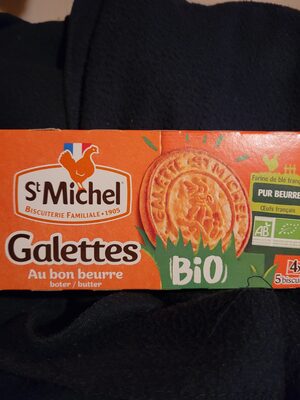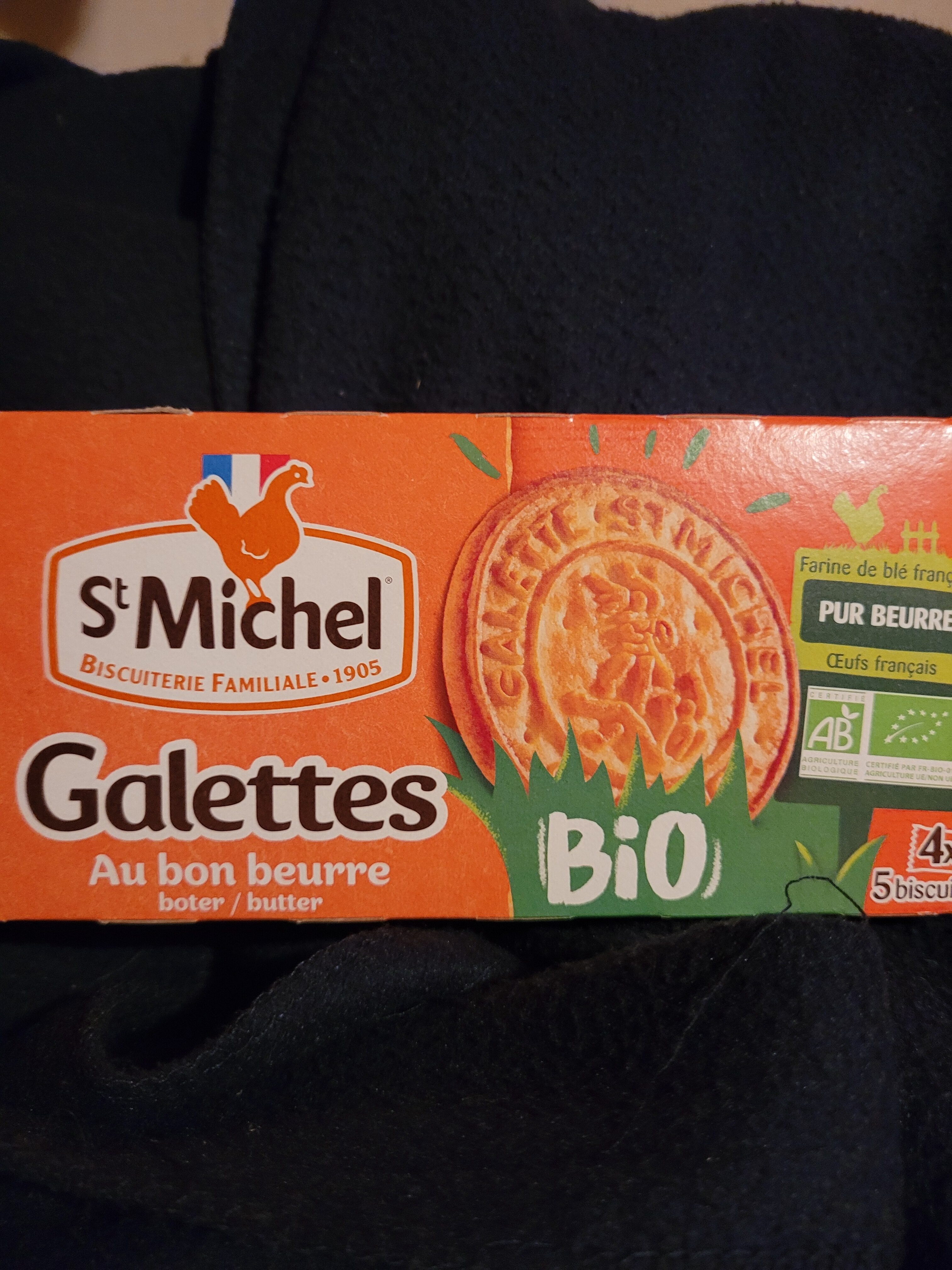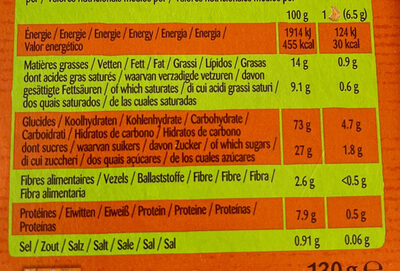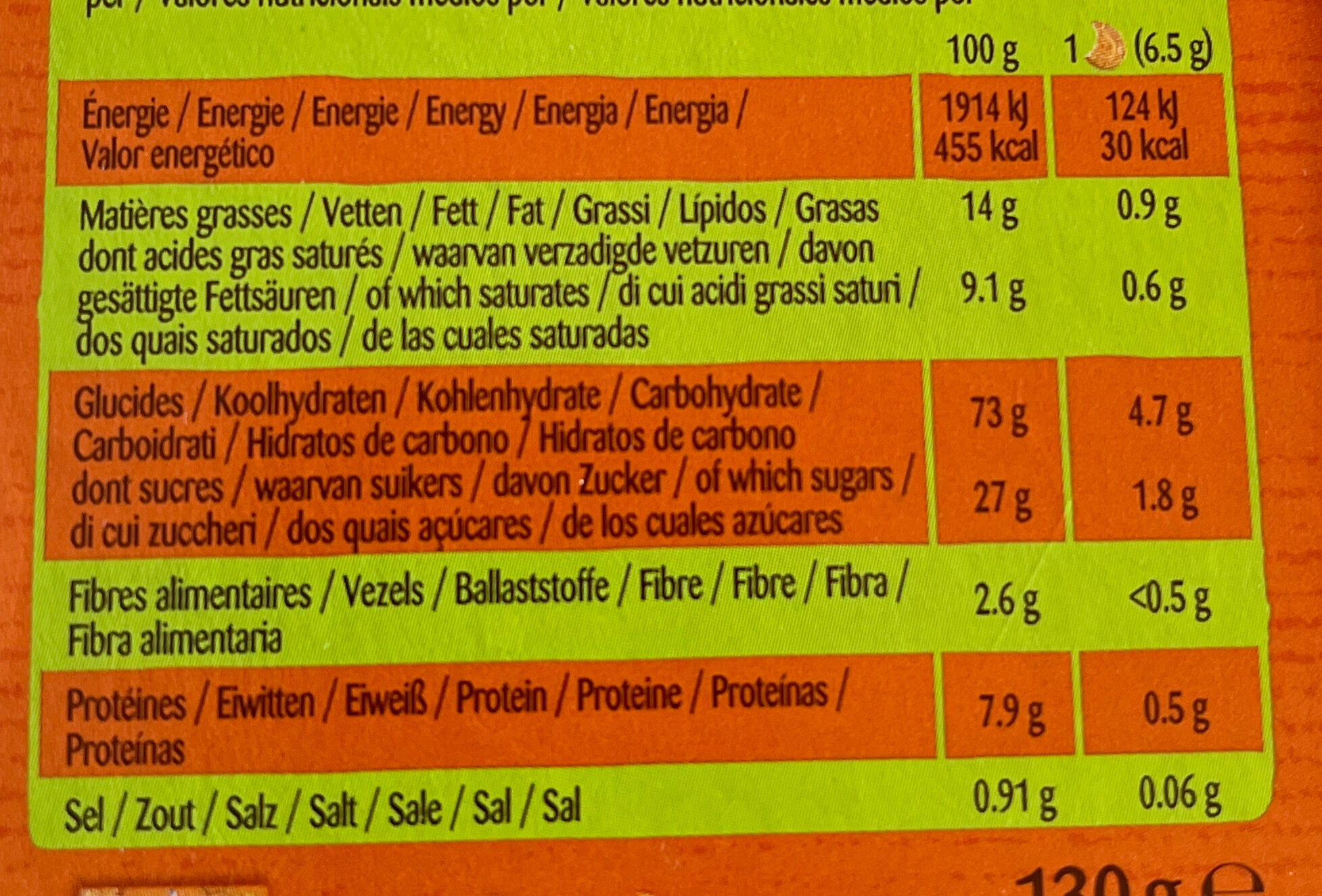Galettes au bon beurre bio - St Michel - 130 g
This product page is not complete. You can help to complete it by editing it and adding more data from the photos we have, or by taking more photos using the app for Android or iPhone/iPad. Thank you!
×
Barcode: 3178530416541 (EAN / EAN-13)
Quantity: 130 g
Packaging: Bag, Individual bag, fr:Etui en carton, fr:Film en plastique
Brands: St Michel
Categories: Snacks, Sweet snacks, Biscuits and cakes, Crêpes and galettes, Biscuits, Galettes, fr:Galette-au-beurre
Labels, certifications, awards:
Organic, EU Organic, Free range, Non-EU Agriculture, EU Agriculture, EU/non-EU Agriculture, FR-BIO-01, Free range eggs, Made in France, AB Agriculture Biologique

Manufacturing or processing places: France
Link to the product page on the official site of the producer: http://www.stmichelbio.fr
Stores: Carrefour City, carrefour.fr
Countries where sold: France
Matching with your preferences
Report a problem
Data sources
Product added on by kiliweb
Last edit of product page on by jessi73.
Product page also edited by camillem, charlesnepote, cquest, dijam, driveoff, ecoscore-impact-estimator, hungergames, karbon, mamanmiguel, openfoodfacts-contributors, packbot, quechoisir, roboto-app, sasa, segundo, smoothie-app, teolemon, wortelvreter, yogoff, yuka.VzdJbEZQd0tvc3NHeTh3OTFBR040OGw2NWNXelkxS0xkT1ExSVE9PQ, yuka.YjVraEh2OCtqS2hYbWNZVTFRemw1NDFMMnFLdEFXM3REN2M4SVE9PQ.














